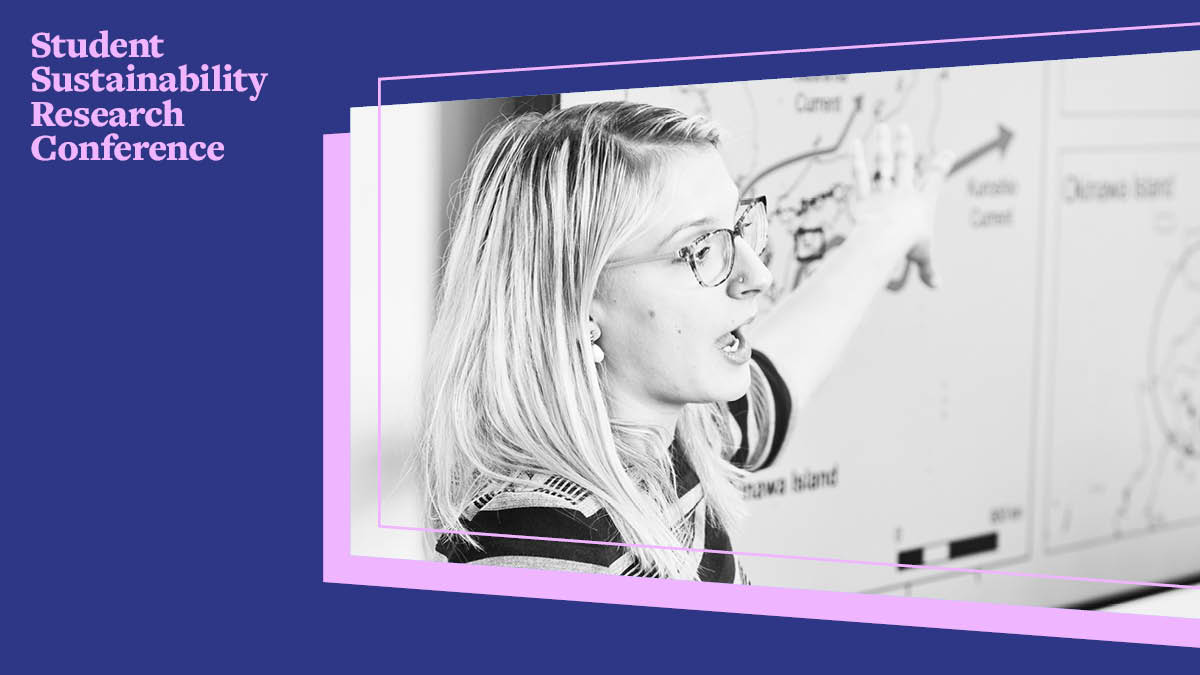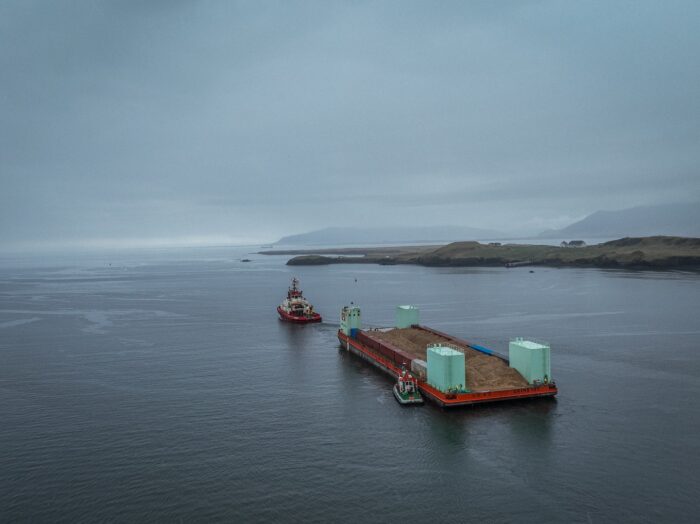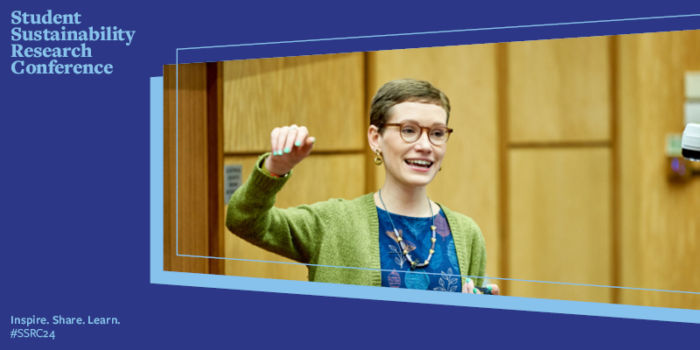Our first carbon neutral Student Sustainability Research Conference

After two years of being held online, we welcomed 320 attendees from across Yorkshire and Humber to the 2023 Student Sustainability Research Conference (SSRC) held at the University of Leeds.
The SSRC 2023 was delivered in collaboration with Yorkshire Universities and was our first conference to be delivered as a carbon neutral event. But what does this mean, and how did we do it?
What do we mean by carbon neutral?
For an event to be carbon neutral, it requires us to measure the emissions associated with every aspect of the conference, reduce them where possible, and then remove an equivalent quantity of emissions from the atmosphere elsewhere by purchasing emissions offsets.
Offsetting is where organisations or individuals fund projects which remove carbon from the atmosphere. They can be controversial, as it is difficult to guarantee the quality of the projects or to be sure that those projects are genuinely additional emissions removals.
We worked with the EAUC Carbon Coalition, a consortium of education institutions working together to develop best practice, evaluate and guide on quality emissions offsets. This can give us confidence in the offsets that we purchased to balance the emissions from the conference.
How did we measure emissions for the conference?
For the 2023 Student Sustainability Research Conference, we identified and measured all of the carbon emissions associated with putting on the event.
This included the energy used for heating and powering the buildings where the conference took place, travel for attendees and speakers, the catering provided at the conference, online storage, poster printing and even the meetings held in organising the event.
We planned the conference in a way that would reduce the emissions where we could, for example by arranging shared transport for attendees from universities outside of Leeds. This had the added benefit of ensuring that all students had the opportunity to attend and benefit from the conference, without the financial cost of travel to Leeds.
The University of Leeds catering team have been working on a project with Leeds Institute of Data Analytics to calculate the emissions associated with their food offering. This meant they were able to advise on the catering options with the lowest carbon emissions, which resulted in an entirely plant based menu being served.
What were the main emissions sources at the conference?
The conference as a whole was responsible for 1.2 tonnes of CO2.
Despite choosing the lowest emission catering options, food was the largest category of emissions, with 0.495 tonnes CO2.
Travel was also a significant contributor to emissions, with a total of 0.477 tonnes CO2 from coach, train and other transport. Students and staff from eight universities travelled to Leeds by coach for the conference, which promoted collaboration and shared learning across the institutions. This is a good example of the difficult balance of creating opportunities and collaboration in tackling the climate crisis versus the need to reduce emissions.
The remaining emissions were associated with activities such as heating (0.078 tonnes CO2), electricity (0.065 tonnes CO2), digital storage (0.033 tonnes CO2) and the organisational stage of the conference.
How did we offset our emissions?

One of Running Tide’s first research deployments in 2023 off the coast of Iceland, representing several hundred net tons of CO2e removal via one of the company's current carbon buoy designs: wood coated with alkaline minerals.
Once we had the final calculation of the emissions associated with the conference, we worked with the EAUC Carbon Coalition to purchase emissions offsets equal to those created by the conference.
Responsible offsetting can be a difficult topic to navigate when many offsetting programmes go unmonitored. The EAUC Carbon Coalition works with higher education institutions to offset emissions by providing a choice of offsetting projects that meet key criteria.
Through the coalition, the SSRC23 has been offset using carbon credits from Running Tide, a global ocean health company that removes carbon using Carbon Buoys which accelerate natural processes in the ocean to restore ocean health.
This net positive carbon removal process introduces natural materials (such as terrestrial biomass, alkaline material and marine biomass) into the ocean. These capture carbon from what is known as the ‘fast carbon cycle’ (the atmosphere, biosphere, and upper ocean) and transfer it to the ‘slow carbon cycle’ deep at the bottom of the ocean where it no longer threatens the planet or ocean with further warming or acidification.
Offsetting through this project allowed us to generate two tonnes of carbon dioxide removal and reduction. That’s equivalent to ten economy flights from London to Berlin, 144 train journeys between London and Edinburgh or one year’s worth of a petrol/diesel car driving (based on an average of 6,600 miles).
This resulted in a conference which was technically carbon positive – by which we mean that the offsets we purchased would reduce emissions in the atmosphere by more than the quantity of carbon emissions generated by the conference.
What next?

The Student Sustainability Research Conference will return in spring 2024, with applications to present open until December 3 2023. Tickets to attend the conference will be available from early 2024.
We know that the experience of taking part in the conference is hugely valuable for students, creating new connections and collaborations, sharing knowledge and inspiring other students to research topics related to sustainability.
The SSRC is an important aspect of the Sustainable Curriculum principle of the University of Leeds Climate Plan. This aims to give all students the opportunity to study, research and engage with sustainability during their time at University, so we’ll also be looking at how we can increase the scale and reach of the conference to engage and inspire more students.
Once again we are working collaboratively with Yorkshire Universities and we are taking everything we've learnt from this year’s conference to deliver another carbon neutral conference.
Get in touch with the Sustainability Service via sustainability@leeds.ac.uk if you’d like to find out more.
 We use the United Nations Sustainable Development Goals (SDGs) as a framework to guide our activity. The Student Sustainability Research Conference is linked to all of the SDGs.
We use the United Nations Sustainable Development Goals (SDGs) as a framework to guide our activity. The Student Sustainability Research Conference is linked to all of the SDGs.
Find out more about our impact on the SDGs.
